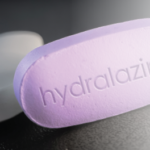The research Dr. Thomas presented found that Rheumavax was safe. Investigators did not observe any major adverse events. The results that the researchers observed were in patients with anticitrullinated protein antibody–treated early RA.
“There’s potential for further development of strategies targeting dendritic cells and cit-peptide in specific HLA-DR groups,” Dr. Thomas said. “The tolerance biomarkers suggest improvement in immune hyperregulation.”
ad goes here:advert-1
ADVERTISEMENT
SCROLL TO CONTINUE
Vanessa Caceres is a freelance medical writer in Bradenton, Fla.
ad goes here:advert-2
ADVERTISEMENT
SCROLL TO CONTINUE


